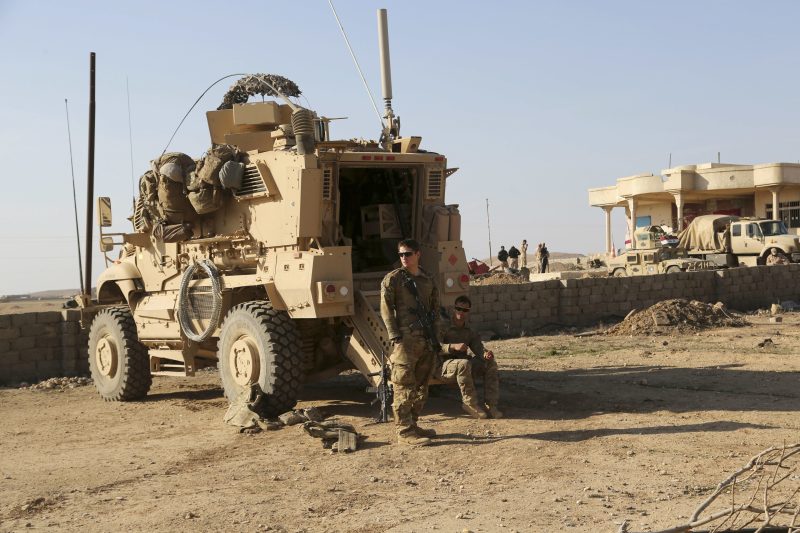The recent discourse surrounding the presence of U.S. troops in the Middle East, particularly in Syria and Iraq, has sparked debates about withdrawal plans and foreign policy strategies. The U.S. administration has been downplaying suggestions of imminent troop pullouts, emphasizing the ongoing commitment to peacekeeping efforts in the region. Despite the challenges and complexities involved, the decision to maintain troops in Syria and Iraq underscores the enduring commitment to stabilizing the region and combating various security threats.
The U.S. government’s stance on troop deployments in Syria and Iraq reflects a nuanced understanding of the geopolitical landscape in the Middle East. In Syria, U.S. troops have played a crucial role in combating terrorist organizations such as ISIS and ensuring the stability of the region. The ongoing conflict in Syria, coupled with the involvement of various actors and interests, necessitates a cautious approach to troop withdrawal. By maintaining a military presence in the region, the U.S. can continue to support local allies, counter extremist threats, and contribute to the broader goal of regional stability.
In Iraq, the presence of U.S. troops serves a similar purpose, albeit in a different context. The U.S. has been a key partner in the fight against ISIS and has supported Iraqi forces in their efforts to eliminate the terrorist group. The security situation in Iraq remains fragile, with ongoing threats from extremist elements and regional tensions complicating the stability of the country. As such, the decision to keep troops in Iraq signals a long-term commitment to ensuring security and promoting peace in the region.
Critics of the U.S. troop presence in Syria and Iraq have raised concerns about the potential for military escalation, strained diplomatic relations, and the overall effectiveness of the current approach. Some argue that a more diplomatic and multilateral approach to addressing security concerns in the region could yield better results than a continued military presence. Others question the consistency and coherence of U.S. foreign policy in the Middle East, highlighting the need for a comprehensive and sustainable strategy.
In response to these criticisms, supporters of the U.S. troop deployments emphasize the importance of maintaining a strong military presence in strategic regions to safeguard national interests and prevent the resurgence of extremist threats. They argue that a premature withdrawal of troops could create a power vacuum, exacerbate existing conflicts, and undermine the progress made in combating terrorism. By staying engaged in Syria and Iraq, the U.S. can continue to shape the security dynamics in the region and work towards lasting peace and stability.
Ultimately, the decision to keep troops in Syria and Iraq reflects a calculated and pragmatic approach to addressing the complex security challenges facing the Middle East. While there are valid concerns and differing viewpoints on the best course of action, the U.S. administration’s commitment to maintaining troop deployments in the region underscores the gravity of the situation and the need for a comprehensive strategy to safeguard regional stability. As events unfold and geopolitical dynamics evolve, the role of U.S. troops in Syria and Iraq will remain a pivotal component of the broader efforts to promote peace and security in the Middle East.
